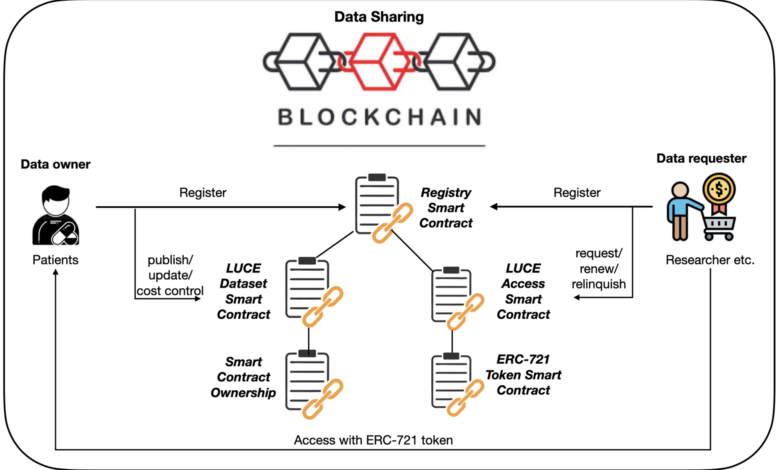The use of blockchain for secure data sharing and transactions

Blockchain is a distributed ledger technology that enables secure and transparent data sharing and transactions. It allows multiple parties to maintain and update a shared database without the need for a central authority.
One of the key features of blockchain is its immutability. Once a transaction is recorded on the blockchain, it cannot be altered or deleted. This ensures that the data stored on the blockchain is tamper-proof and secure.
Blockchain technology can be used for various purposes, including financial transactions, supply chain management, voting systems, and identity verification. In each of these use cases, blockchain provides a secure and transparent way to store and share data.
For example, in financial transactions, blockchain can be used to create a decentralized payment system that eliminates the need for intermediaries like banks. This can reduce transaction fees and increase the speed and security of transactions.
In supply chain management, blockchain can be used to track the movement of goods from the point of origin to the end consumer. This can increase transparency and reduce the risk of fraud or counterfeiting.
In voting systems, blockchain can be used to create a secure and transparent system for recording and counting votes. This can increase the integrity of the electoral process and reduce the risk of manipulation.
Overall, blockchain technology has the potential to revolutionize the way we store and share data, enabling secure and transparent transactions and improving trust and accountability in various industries.
In addition to the features mentioned above, blockchain technology also offers a high level of security. Transactions on the blockchain are verified and validated by a network of participants, who use complex algorithms to ensure that the transactions are legitimate.
Moreover, because the blockchain is decentralized, there is no central point of failure. This means that even if one part of the network goes down, the rest of the network can still operate and maintain the integrity of the data stored on the blockchain.
Blockchain technology also offers privacy and confidentiality, as users can control who has access to their data. In traditional databases, data is often stored in a central location, which makes it vulnerable to hacks and cyberattacks. In contrast, blockchain technology stores data across multiple nodes, making it much harder to attack.
One of the most popular applications of blockchain technology is cryptocurrency. Cryptocurrencies like Bitcoin and Ethereum use blockchain to record and verify transactions. Because these transactions are recorded on a public blockchain, they are transparent and can be viewed by anyone. However, the identity of the participants in these transactions is often kept anonymous.
Overall, blockchain technology has the potential to transform the way we store and share data. Its features of immutability, security, decentralization, privacy, and transparency make it an attractive option for a wide range of applications, from financial transactions to voting systems to supply chain management.



